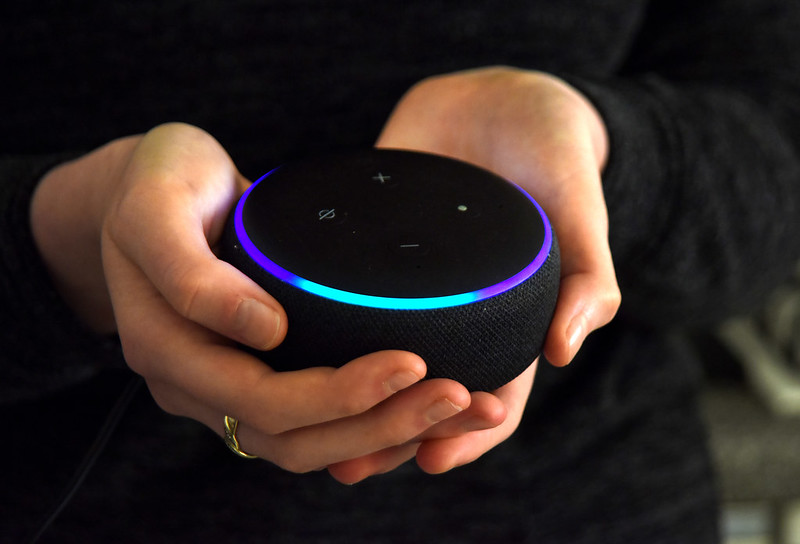
When Ian Whitelaw explored the features of his new virtual assistant, he quickly realised it could be the answer he and his colleague, Pauline Waddell, had been searching for.
For months the team behind the Council of the Future Analogue to Digital Telecare Project had been looking for a tool that would help Kevin, a telecare user, retain some independence once his condition deteriorated, leaving him unable to move freely.
Technology Enabled Care has been an important area of development for Falkirk Health and Social Care Partnership. With smart home devices becoming common in many homes, the team continue to explore new ways of utilising technology which is already a part of many people's daily lives.
Having digitally enabled Falkirk’s telecare service last year, Ian and Pauline quickly understood the benefits virtual assistants - and smart devices in general - could bring to people using the Mobile Emergency Care Service (MECS).
Knowing Kevin already had an Amazon Echo Dot in his home, they worked with him to enable a range of voice-activated skills such as making phone calls and installed a smart socket that allowed him to control his lighting.
The results exceeded expectations, with Kevin able to call his family and friends whenever he wanted rather than have to wait for someone to make the call for him.
Alexa call ...
To gain a better understanding of the potential benefits smart devices could bring, funding was secured for a pilot and a range of technology - including c30 Amazon Echo Dots and Shows - were bought and installed in the homes of 15 people supported by Falkirk’s MECS.
Over a period of six months, the team assessed how the smart speakers connected and received calls through the Digital Alarm Receiving Centre - installed as part of the award-winning digitisation of MECS - and how they linked with a range of smart sockets.
Pauline Waddell, Team Manager, MECS, said: "Because the Dot is voice activated, people found it the easiest to use. Once linked to Dots owned by family and friends, it also allowed users to communicate whenever they wanted, helping to reduce feelings of isolation. Playing music and setting reminders for things like medicines and putting the bins out was also beneficial."
The pilot confirmed what the team had suspected - when used alongside MECS equipment, smart devices are easily accessible pieces of kit that could provide complementary life-enhancing support for people who want to have more independence within their home.
Holistic service
Video: Telecare helps thousands of local people, like David and Bill, live independently at home.
The pilot demonstrated that people could use the devices to do things most able-bodied people take for granted, such as switching on and off lights, the TV and heating systems. Importantly, they also provided a new way to interact with family and friends.
Ian Whitelaw, Analogue to Digital Telecare Project Manager, said: “Although a small sample size, the pilot highlighted some of the benefits smart devices could bring to customers. Because many people already have these devices in their homes, care packages in the future could potentially incorporate an element of bring your own device, creating a more holistic and rounded service.”
The findings of the pilot project have been shared with the
Digital Office for Scottish Local Government as an example of good practice, and proposals for future development are currently being considered by Falkirk Health and Social Care Partnership.